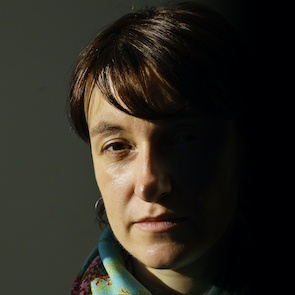Gendered online harassment and threats against human rights journalist Nidzara Ahmetasevic
On 22 January 2021, human rights journalist Nidzara Ahmetasevic officially reported to police the gendered online harassment she has been experiencing on social media and the threatening messages she has been receiving from unknown men for several months.
 Nidzara Ahmetasevic is a women human rights defender, journalist and independent researcher working on the situation of migrants and refugees in Bosnia and Herzegovina. She collaborates with different media in the Balkans and several international outlets and has published scholarly articles on the topic of migration. Nidzara Ahmetasevic has been working on the Balkan Route since 2015, exposing violations of human rights in different countries. Since the crisis began in Bosnia and Herzegovina in 2018, her focus shifted mainly to the situation of migrants and refugees, exposing human rights violations and emphasizing solidarity networks.
Nidzara Ahmetasevic is a women human rights defender, journalist and independent researcher working on the situation of migrants and refugees in Bosnia and Herzegovina. She collaborates with different media in the Balkans and several international outlets and has published scholarly articles on the topic of migration. Nidzara Ahmetasevic has been working on the Balkan Route since 2015, exposing violations of human rights in different countries. Since the crisis began in Bosnia and Herzegovina in 2018, her focus shifted mainly to the situation of migrants and refugees, exposing human rights violations and emphasizing solidarity networks.
On 22 January 2021, human rights journalist Nidzara Ahmetasevic officially reported to police the gendered online harassment she has been experiencing on social media and the threatening messages she has been receiving from unknown men for several months.
Nidzara Ahmetasevic is a women human rights defender, journalist and independent researcher working on the situation of migrants and refugees in Bosnia and Herzegovina. She collaborates with different media in the Balkans and several international outlets and has published scholarly articles on the topic of migration. Nidzara Ahmetasevic has been working on the Balkan Route since 2015, exposing violations of human rights in different countries. Since the crisis began in Bosnia and Herzegovina in 2018, her focus shifted mainly to the situation of migrants and refugees, exposing human rights violations and emphasizing solidarity networks.
On 22 January Nidzara Ahmetasevic went to the headquarters of the Federation of Bosnia and Herzegovina police in Sarajevo and reported the threats and messages, containing sexualised content, which she has been receiving several months. She decided to report these harassments because she has noticed a pattern of escalation. The messages were sent by unknown men on social networks, mostly as private messages on Facebook messenger, or posted on her Facebook page. Some text messages with similar content were also sent on her mobile phone.
All the messages refer to Nidzara Ahmetasevic’s vocal position in defending refugees and migrants. Some messages contained threats of physical assault and rape, while others are insults containing sexualised content, such as calling her a lesbian and immigrant’s whore. One of the messages states: “State intelligence agency needs to deal with you, because you are a mercenary logistician of people from all over the world, who enters our country illegally and without documents and creates chaos. These are not war refugees, but ordinary criminals and able-bodied men and from Morocco, Algeria, Pakistan, Afghanistan, etc. And you, with your false moralizing, support terror against the citizens of Bosnia and Herzegovina. However, maybe you miss that thing, and only the migrants wanted you, I understand you completely”.
The gendered online targeting of Nidzara Ahmetasevic is not an isolated occurrence, but forms part of a pattern of harassment against Bosnian women human rights defenders working with refugees and migrants. Another migrants right defender from Bosnia and Herzegovina, Zehida Bihorac, reported that she receives numerous messages of similar content. Front Line Defenders receives regular reports from women human rights defenders from Bosnia and Herzegovina who are exposed to the same type of risks; all of them report sexualised content that varies from threats of sexual violence if they do not stop their work in assisting migrants to allegations that they are engaged in sexual relations with migrants and spread sexually transmitted diseases. Sexualised online harassment has a stark affect on women human rights defenders as it significantly impacts their psycho-social well-being. Those who are responsible for these attacks are rarely exposed or held accountable for their actions because women human rights defenders are often too ashamed to publicise such content and to report it to the police.
Front Line Defenders is seriously concerned by the online harassment and threats against Nidzara Ahmetasevic and other women human rights defenders in Bosnia and Herzegovina and believes it is linked to their legitimate and peaceful human rights work and reporting about situation of refugees and migrants in the country.
